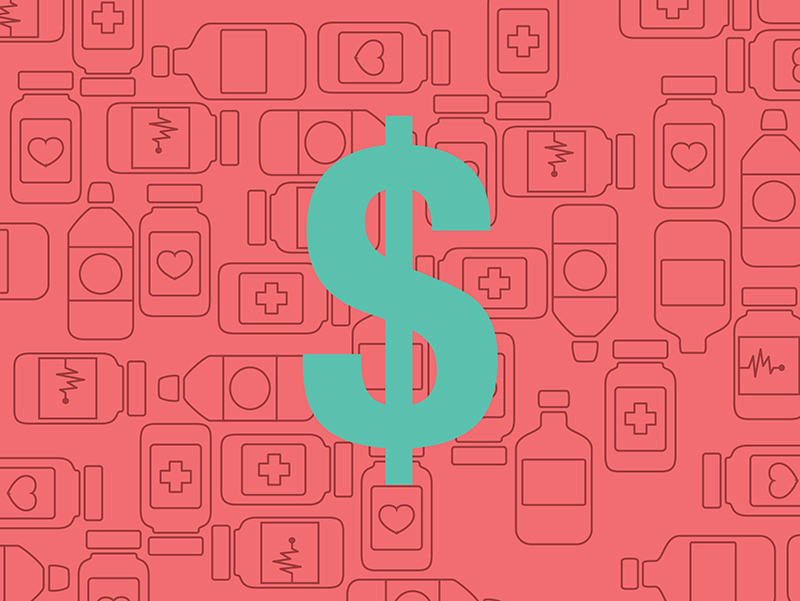First published by the Partnership Network Association in Kyrgyzstan, read here in Russian.
- Analysis carried out by our campaign partner, the Partnership Network Association, has identified potential savings of $53,000 (USD) for Kyrgyzstan’s HIV budget.
- These savings can be achieved by switching the procurement of HIV drug darunavir, from branded medicines to quality-assured generics.
- This is a significant figure in Kyrgyzstan, equating to 5.7% of the total ARV spend.
- More than half of people living with HIV in the country are not on treatment. The savings could be used to help narrow the treatment gap.
Darunavir is a key drug in second and third-line HIV treatment in Kyrgyzstan. It is included in the Republic of Kyrgyzstan’s HIV treatment guidelines; listed as a preferred regimen by the European AIDS Clinical Association (EACS); and as an alternative regimen by the World Health Organization (WHO).
The Partnership Network Association analyzed the procurement of HIV drugs throughout 2019. The work was supported by ITPCru, using a community-monitoring system which it designed.
A key finding of the analysis was that 180 packs of 600mg darunavir were purchased for $350 per pack, totalling $63,000.
This was for the treatment of 15 patients, making the price per patient per year (pppy) $4,200, when it could be as low as $660.
If darunavir had been purchased for Kyrgyzstan in line with the recommended price published by The Global Fund, of around $55, this would have reduced the cost to $9,900.
This is six times less – and a saving of $53,000.
This is a significant amount by the country’s standards.
In 2019, the Global Fund and the state budget spent a combined $925,217 on ARVS, meaning that the potential savings equate to 5.7% of the total ARV budget.
The United Nations Development Program (UNDP) enacted the Global Fund procurement in 2019. The Partnership Network Association wrote to UNDP asking why it had procured the original medicine at $350 rather than the generic medicine at the recommended price of $55 per pack.
In response, UNDP wrote:
“On the Global Fund’s website, the recommended pricing document includes a note stating that prices for some products may not be available in some countries due to licensing restrictions (patent). In the territory of the Kyrgyz Republic, a patent for darunavir 600mg … is valid until 16 May 2023.
Based on the above, the possibility of purchasing this medicine from other manufacturers (not being patent holders) was discussed with the UNDP procurement department in Copenhagen at the time of the previous order… in 2018. Taking into account that the process of procurement from other manufacturers (not being patent holders) had been forecasted to be long, as well as considering that the scope of procurement was rather small, the Project was recommended to purchase the medicine from the patent holder.”

15 people are treated for the price of $4,200 per person per year. The same spend could treat an additional 80 people by switching to generics.
The patent is not a barrier – nor is speed
It is notable that the patent is not explicitly mentioned as a barrier to generic procurement, instead the reasoning was a concern about the length of time that it might take to procure from other (generic) manufacturers.
The patent in Kyrgyzstan, protects a specific form of darunavir, namely ethanolate. However, several amorphous versions of darunavir have been registered on the world market, and which comply with the patent. Some have a WHO pre-qualification certificate and therefore can be procured within the Global Fund project.
Additionally, during meetings with NGOs, the manufacturers of amorphous darunavir have declared that they are ready to promptly deliver the medicine upon receiving a request.
More people could be treated for the same price
With regards to the small scope of procurement, this is true. The relatively large investment was for the essential treatment of 15 people. However, if the price of darunavir had been lower, more people could have also received darunavir-based regimens. The $53,000 savings could have, for example, provided another 80 patients with darunavir, if purchased at the attainable $55 price.
Armenia example
It is interesting to look elsewhere, to confirm that neither patent nor procurement volume need to adversely affect the price paid.
For example, in Armenia in 2019, generic darunavir was purchased for $54 per pack via Global Fund tenders and $112 via government procurements.
The procurements volumes in Armenia are much less than in Kyrgyzstan, and the same, specific, patent is valid in Armenia. Yet, neither factor has impeded the purchase of generic darunavir.
Change procurement – save lives
The Partnership Network Association urges UNDP to procure generic darunavir at the recommended price of $55 USD and to use the savings to purchase additional, affordable HIV treatment.
Less than half of people living with HIV in Kyrgyzstan are receiving life-saving treatment, and so all savings are significant.

